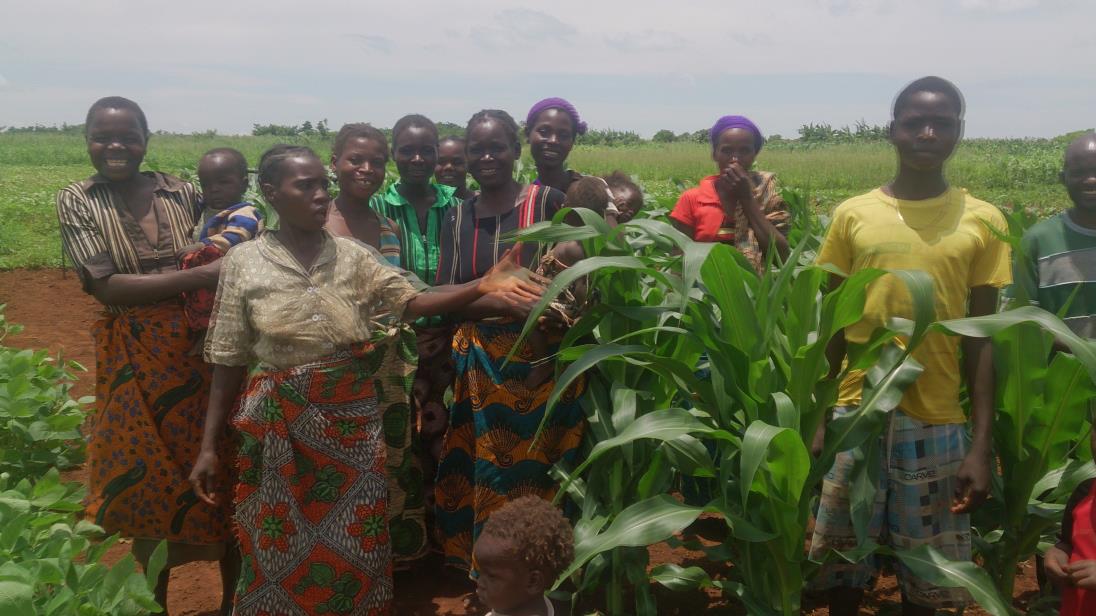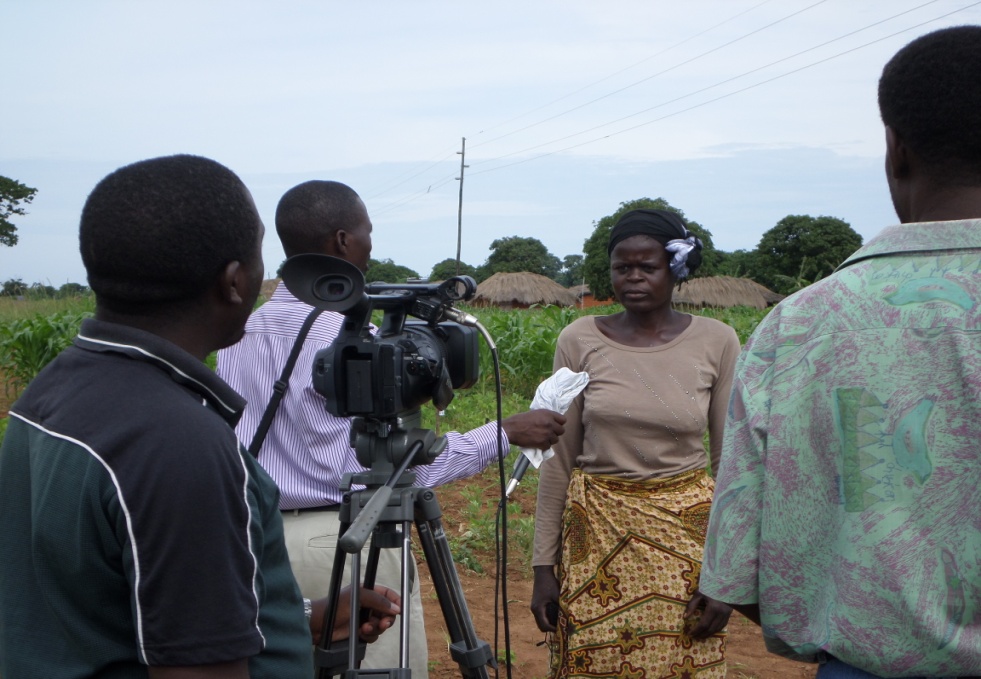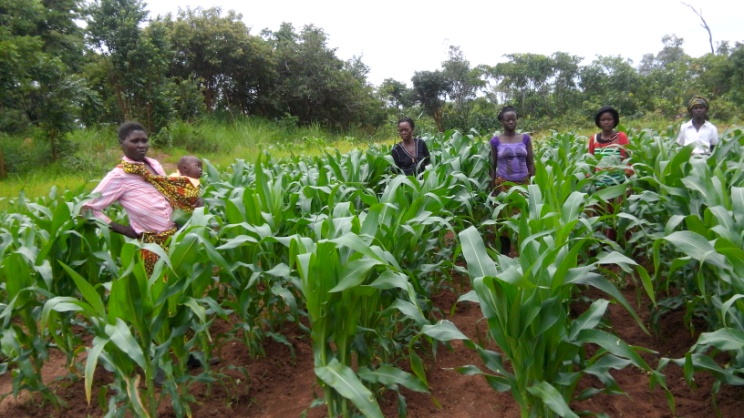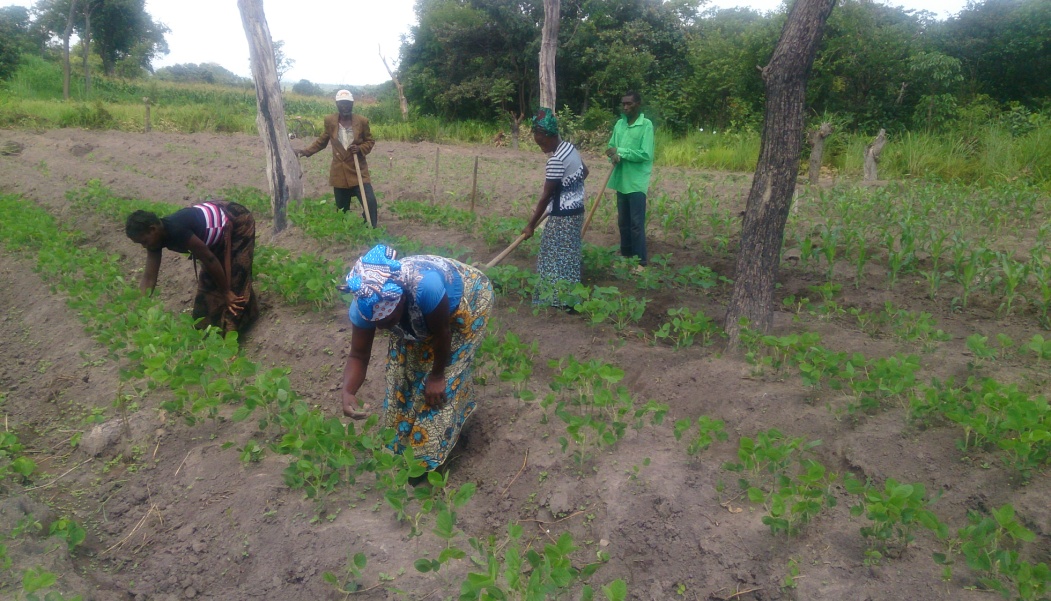In many countries in sub-Saharan Africa, governments and communities are adopting innovations that improve the lives of millions through better agricultural production to diversify household diets and enhance nutritional status especially of poor subsistence-based farming households. In Zambia, IITA is helping bring this about by introducing farm families to technologies that give them more crop-based choices to improve their health and nutrition.
With a local partner, Development Aid from People to People (DAPP), IITA is implementing a nutrition-sensitive agriculture-based intervention. This is named SUN – or Scaling-up Nutrition: the first 1000 critical days from pregnancy until a child turns 2 years old. The SUN project aims to enhance the nutrition and health status of children under 2 years and pregnant or lactating women through increased production of different crops, dietary diversification, and the consumption of these nutrient-rich crops in poor smallholder farming communities in Luapula, Eastern, and Northern Provinces of Zambia.

Mrs Elizabeth Tembo (far left, holding her child) with other members of her community participating in the SUN project in in Kipara, Chipata, Eastern Province
The project is being supported by UK Aid, Irish Aid, the Government of Sweden, and the Zambian Government through the Ministry of Agriculture and Livestock.
In an interview, Mrs Elizabeth Tembo, a project beneficiary and a mother who recently gave birth in Kapara, Chipata, in the Eastern Province of Zambia, said she was grateful to the SUN project from IITA/DAPP. She had learned a lot about improved farming practices that integrate high-yielding varieties of nutritious crops, such as cowpea, soybean, and legumes, as well as fruits and a variety of green, leafy vegetables. She also related how the project taught her how to prepare a variety of tasty dishes that use the crops she grows in her own field.
“My family really likes these dishes, and I know that they are good for them as well as for me and my baby since I am still breastfeeding him,” Mrs Tembo narrated.
Apart from growing and using the nutritious crops, Mrs Tembo also learned traditional pest control methods which she is applying on her field. She said she was teaching other women in her community about the things she has learned from the SUN project to help to reduce the high prevalence of malnutrition and stunting among children.
In Lundazi, Mrs Lyness Zimba says that the she has been regularly attending the weekly training given to women like her in her community by agricultural and health specialists working under the SUN project. “They teach us the basics of nutrition, the importance of feeding our children nutritious foods, and how to cultivate and use various nutrient-rich crops in our homesteads. The project also gave us cookery recipes that make use of the crops.”
“Apart from the obvious health benefits
of the crops being espoused by the
project, the simple act of gaining knowledge about nutrition for my family is empowering,” she added. “I will definitely continue to practice what I have learned even after the project, for my sake and the sake of my children.”
SUN participants in Kasama and Mansa in the Northern Province of the country also aired their appreciation of IITA/DAPP for bringing the project in their communities. They indicated that they had benefited a lot and would adopt the practices they had learned to reduce malnutrition and stunting in their families.

Mrs Lyness Zimba of Kapichila camp in Lundazi being interviewed by journalists about the benefits of the SUN project
The SUN project continues to provide participating farmers in its project areas with training on improved agronomic practices, seed multiplication, the need for timely planting and weeding, cultivating diverse crops rich in protein and vitamin A, and the utilization and processing of the crops.
IITA and DAPP have also linked the farmers to other organizations that are training
them on improved crop storage and preservation.





No Comments